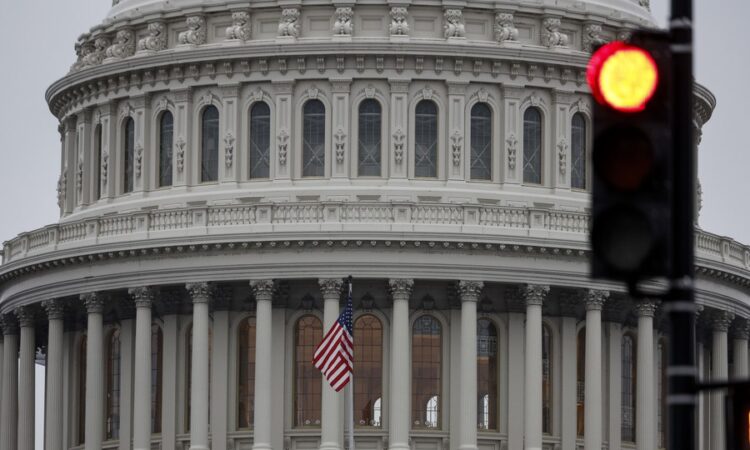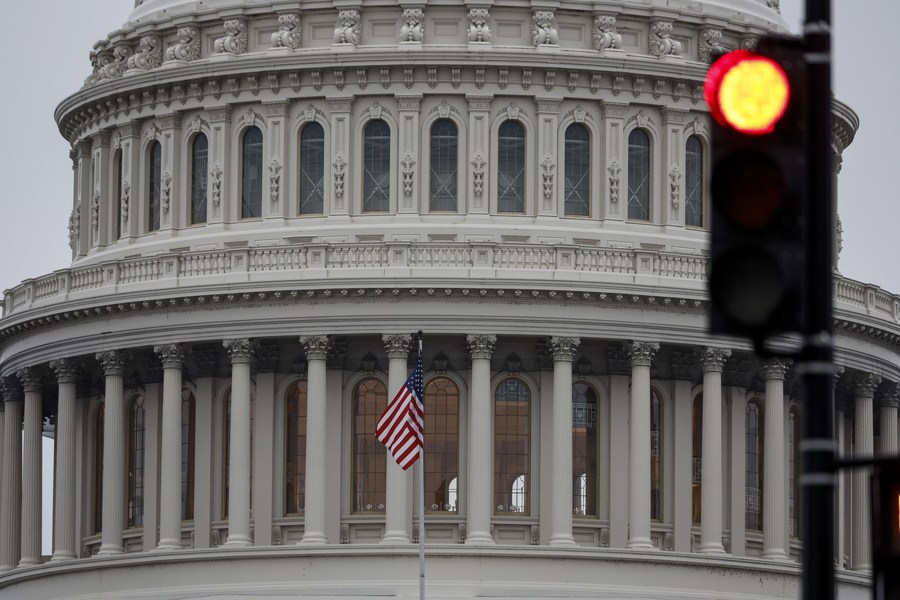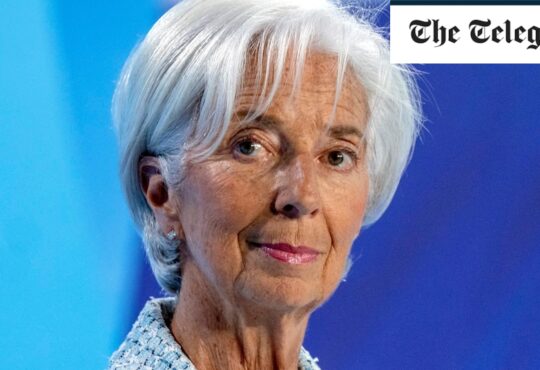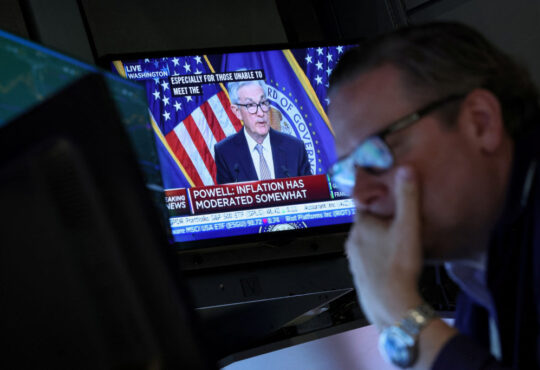

Photo taken on Jan. 19, 2023 shows the U.S. Capitol building in Washington, D.C., the United States. (Photo by Ting Shen/Xinhua)
The United States “calls for a free global market and then imposes restrictions and adopts monopoly. All depends on its own interests.”
by Mahmoud Fouly
CAIRO, April 18 (Xinhua) — The U.S. zero-sum economic policies, represented by the Inflation Reduction Act and the CHIPS and Science Act, lay bare an imperialist mindset and will backfire on the United States itself, an Egyptian economist has said.
Though these acts seem to be directed toward bolstering U.S. clean energy and electronics industries, they imply a move to monopolize these sectors at the expense of other countries’ interests, particularly China and even Washington’s allies in Europe, said Moatasem Rashed, a veteran economic consultant for the Egyptian Federation of Investors Associations, in a recent interview with Xinhua.
“These policies come within an imperialist framework adopted by the United States,” he said, citing French President Emmanuel Macron’s recent criticism of the Inflation Reduction Act for its risks against Europe.
“The European countries started to reject being followers of the United States and to decline its policies,” Rashed observed, adding that the United States, upholding the Machiavellian policy of “the end justifies the means,” is undemocratic in light of its foreign policy and relations with others.
“The United States sees no one but the United States,” he continued. “When it enacts trade and industrial acts or policies, it considers only its own interests and disregards the interests of other countries.”
Rashed echoed the idea in an article by Adam Posen, president of the Peterson Institute for International Economics, recently published in Foreign Policy magazine, in which Posen said U.S. trade and industrial policies under the previous and current administrations “attacked international trade and investment as harmful to U.S. economic and national security, even though the rules for that very system were established by the United States,” while the current White House “has sought to take away production from others in a zero-sum way.”
In the view of the Egyptian economist, “this is true, and it is proven by the fact that the United States does not abide by any resolutions or rules issued by the World Trade Organization.”
Meanwhile, the U.S. attempts to decouple its economy from China and contain its development will hamper the U.S. growth instead, he said. “It will certainly backfire on the United States and will be rejected by the American citizens themselves, for Chinese products have grown very popular in the United States.”
Despite U.S. zero-sum policies that contradict the rules of free trade and negatively affect innovation and competition, “China is truly the world’s factory, whether the United States likes it or not,” he said, lamenting that the U.S. imperialist mindset has been deeply rooted.
The United States “calls for a free global market and then imposes restrictions and adopts monopoly. All depends on its own interests,” the Egyptian economist said, adding Washington’s hegemonic policies are reflected in both politics and economy.
“The U.S. political and economic hegemony are two sides of the same coin,” he added.■





